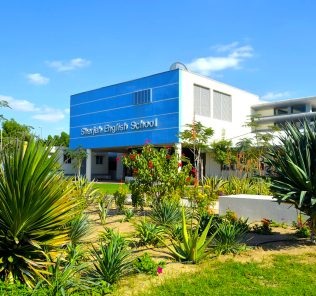Part 3: Comparing Curricula
From the above, we can only recommend transfer for traditional 16 – 18 study into British schools offering either A Levels or BTEC, or IB schools (International, US or Swiss) offering either the International Baccalaureate Diploma or International Baccalaureate Career-related Programme.
In exceptional cases, students may choose to transfer from alternative curricular schools (IS, Indian or MOE) at 18 years, effectively adding two years to their schooling. In the majority of cases students will transfer internally between IB schools or British Schools with continuity of education moving from IGCSE study to A Level, and MYP programmes to the IB Diploma or CRP. The exception is with some US schools that are set up for Diploma study.
In many cases, students will transfer to access technical qualifications, including BTEC and the CRP, not offered by their schools. But there are a myriad of other reasons, outside simple practical issues including parents moving, why transferring makes sense for many students, including accessing higher quality provision, better school links with Tier 1 universities and broader subject choice and specialised dedicated Sixth Form and IB Senior provision.
One question we are consistently asked, however, is whether students should transfer out of the British system to study for the IB Diploma, or transfer out of the IB system to study A Level.
1. A Level versus International Baccalaureate
Arguably, for the vast majority of English-speaking students the choice at 16 will be between studying for the A Level or International Baccalaureate Diploma. In the majority of cases this will mean choosing between dedicated British or IB schools, although there are a number of hybrid schools, including American schools that offer dual or parallel stream IB and High School Diploma study.
We think, for some children, there are risks in choosing the IB Diploma over A Levels.
In broad outline, the benefits of A’ Levels are as follows:
- In real terms a typical A Level student will study three (or less often 4) subjects compared to nine in the International Baccalaureate. Even for the most gifted all-rounder, in the IB system life outside the IB is limited. This hits students who have particulate interests in sport, drama and broader Performing Arts – in fact, any interests outside core IB provision. To be balanced, one of the first things developed by IB Diploma students is organisational ability. IB students become exceptional planners, and learn how to create time.
- In the A Level system, subjects to be studied are chosen by each student according to their own ability and ambitions – a child gifted in the Sciences does not have to study for languages or the Arts. In the IB system students must study subjects in which they may have no interest or ability – and be graded on them. A Levels work on specialism and student strengths in subjects and do not require children study subjects in which they have no interest or in which they are less accomplished.
- In IB schools talented scientists are restricted to studying two sciences. In British schools, they can opt to study all three core Sciences: Chemistry, Physics and Biology. A number of Science students sit a fourth A Level in Mathematics because of the natural cross-over of knowledge.
- The A* Grade at A’ Level is harder to achieve than the Grade 7 at IB allowing gifted students to stand-out.
- The EPQ (Extended Project Qualification) is offered in a number of Tier 1 British schools to add breadth to A’ Levels – but is not required. It adds to a CV for those who excel in this type of work/projects, but is not compulsory. The ability to not undertake it offers more time if a student his passions elsewhere.
- In a two-year period, an IB Diploma candidate will study 9 very demanding individual programmes across a wide-ranging body of subjects. This compares to three in British schools in specialised limited areas in which the child is interested and gifted. Weakness in even a single subject area within the IB will significantly impact on the overall score achieved and is likely to cost the candidate a place at many universities.
- The IB places an emphasis on languages. A weakness in a second language will unavoidably result in a drop in final IB score. This is likely less of an issue in the UAE where students tend to speak 2 or more languages natively.
- The IB continues to have less profile with many employers and universities – in the UK – than A Level. A-levels may be a UK qualification, but they are accepted by universities and employers around the world.
- Whilst the figures are debated, best case, for A-level applicants, there is around an eighty per cent success rate in securing first and second choice University places – but for the IB it is only 60 per cent. In addition, many students will never get to the point of securing a Diploma at all, instead securing Certificates in individual subjects. Certificates without a Diploma have little currency with top tier universities or industry.
- To understand what this means in practice, and as a very general guide, Tier 1 universities in the UK make offers based on a student securing between 34 and 40 points. Oxbridge offers range between 40 and 45 points. UK universities will also focus on stipulating individual scores in the Higher Level subjects – and for Tier 1 Universities these are likely to be between 6 and 7 points (7 points Oxbridge), particularly in the subjects closes to the projected course of undergraduate study.
The Case for IB
To be balanced, IB Diploma schools argue that the British system forces children to specialise too early.
If the aim is to secure a place at top universities, the IB Diploma could – for some children – stack the decks against them in demanding that they study for, and are graded on, subjects that may neither interest them, or in which they are weak. Equally however the best IB schools are responsibly selective and will not take students on who they do not believe will achieve highly in Diploma study.
If you (or your child) is a polyglot and balanced in terms of left/right brain then the IB is clearly and undeniably a curriculum that allows broader development.
It is also a curriculum that has considerably less political interference. Over the last 15 years, the percentage pass rate for A Levels (students achieving a Grade E or above) has increased to almost 100%. The percentage pass rate for the IB Diploma has remained constant over the last 20 years at about 78%. The decoupling of AS levels and pure linear examinations at the end of the second year of A Level study is driven in some part by the aim to tackle this.
Delaying specialisation also means there are more degree options available for longer. How many children at 16 know what they want to study at university?
This is a very good point and why the best British schools are investing much earlier in careers and related areas of education.
A Levels will also usually require students to give up a second language. For linguist this is a high price to pay. In fact, given the growing globalisation of industry, a high price for anyone to pay.
Finally, research supports the argument that IB DipM students are generally more likely to secure a place at Oxbridge or Russel Group universities. more likely to get a first class degree and more likely to go on to postgraduate study. But of course, this should be the case, given the academic profile of students we believe is necessary for the IB Diploma to be appropriate.
Finally, students must be careful not to over-specialise at A Level. A good example is provided by A Levels in Business and Economics. Many universities, including the London School of Economics, specifically caution students not to study both A Levels – with the implication that applications from students studying both subjects will be downgraded. A more obvious example can be found in the cases of A Levels in Biology and Human Biology. Edinburgh specifically states that in such cases these will be treated as a single A Level because of the significant degree of subject crossover.
Bottom line? Our view of the choice between A Levels and the IB Diploma
If you are set on the IB, we think you should be able to answer all of the following positively:
- High proficiency in a second language
- Very high levels of drive and self-discipline
- Willingness to sacrifice interests outside core IB study
- High proficiency in Arts and Sciences
Even with all of these in place, if the goal is a UK University – we still question whether the undoubted breadth of the IB will be a sufficient benefit in itself to outweigh the specialism offered by A Level, the choice it gives to students to study the subjects the love – and the greater time it makes available to students to invest in their personal development and interests outside academic study.
Our view, perhaps controversially, is that the IB will be a risk for those who are not left, right brain balanced because of the impacts of a low score on university or industry entry.
For academic, generalist students, with high levels of proficiency in a second language, and who are equally gifted in the Arts and Sciences, there is a (strong) argument for the IB. There is no doubt that the IB Diploma provides an extraordinarily rich programme of studies.
The question SchoolsCompared.com has is how many naturally fit this profile?
If the end point of IB/A Levels is itself – not university, then even for student without that profile the IB will be a fantastic option – it will undoubtedly help balance the student. However if the purpose is to secure the top points required to access top tier universities the price for seeking balance may be too high for many parents and students to pay.
It is worth noting that there is some unfairness with the IB with regards to international comparisons and university entry. Theoretically an IB Higher Level Course graded 7 is worth 56 UCAS points – directly equivalent to an A* Grade at A Level. In practice, however, UK universities expect students to achieve a full Diploma and are wary of students who have sat certificates individually.
Next: Technical/career oriented education versus academic











































































Leave a Response